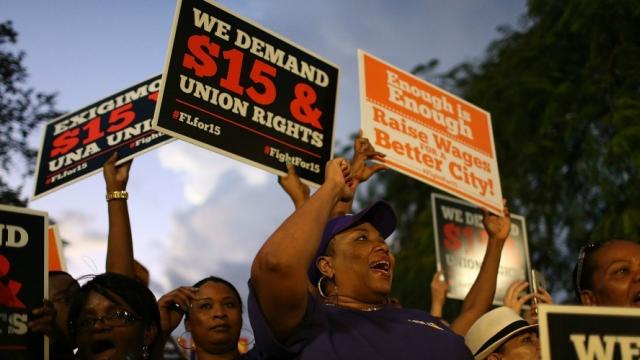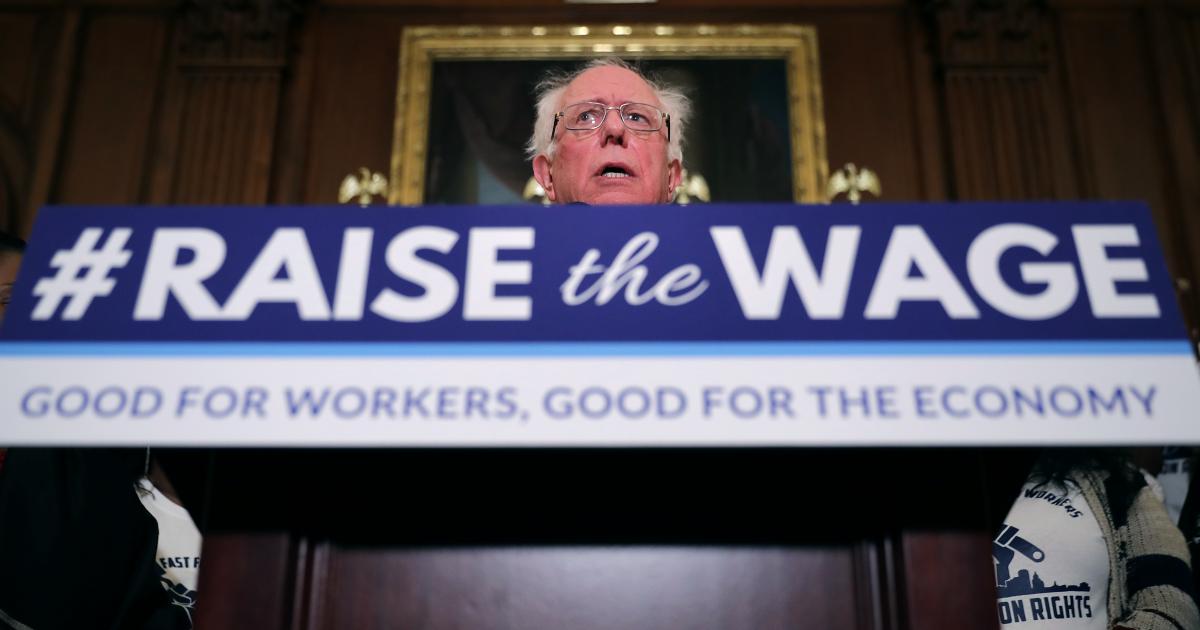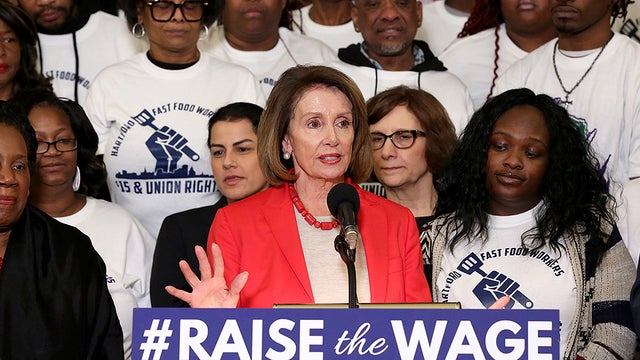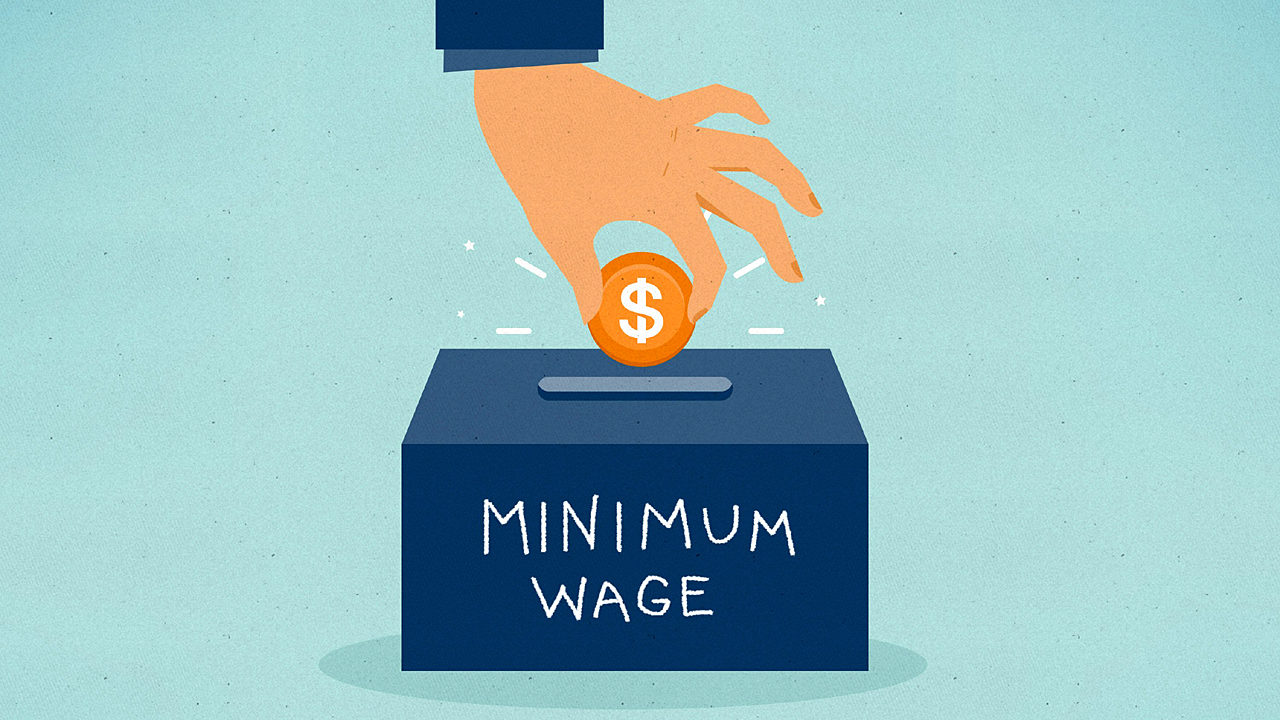
Following a July 8 report from the non-partisan Congressional Budget Office on the effects of raising the federal minimum wage to $15 per hour, progressive representatives are moving forward a bill to bring to a full vote in the House this week that would gradually increase the federal minimum wage from $7.25 to $15.
The CBO report concluded that an increase in the minimum wage to $15 per hour would increase wages for approximately 17 million workers, as well as potentially increase wages for workers who currently make $15. The effects would decrease the numbers living in poverty.
The CBO report also concluded that as many as 3.7 million people could lose their jobs as a result of the wage, which could force businesses to cut costs. The non-partisan report predictably supported positions in favor and in opposition to an increase in the minimum wage.
“American workers and families will lose their jobs if this bill is enacted,” Arkansas Republican Congressman Steve Womack said. “I urge House Democrats not to advance a proposal that would unravel that progress and hurt millions of families in the process.”
The CBO stated explicitly in the report that there is uncertainty about the jobless numbers and what broader effects a minimum wage increase would have on employment. Proponents of the increase, like the liberal Economic Policy Institute, argue that the CBO’s numbers are higher than their research indicates.
“CBO’s job loss projections are overly pessimistic,” EPI economist Ben Zipperer told Occupy.com. “Even with job losses, 27 million workers would see an increase, so the benefits outweigh the costs.”
Twenty-nine states have already increased their minimum wage beyond the federal level, and some states like California will gradually increase it to $15 over the next few years. In high-priced cities like New York, the minimum wage is already $15.
Major employers like Amazon and Bank of America have announced their minimum wage will be $15 or higher in response to Congressional criticism. Still, almost half the country, primarily in the Deep South, has a minimum wage of $7.25 per hour, a wage that hasn’t budged in a decade.
It is the longest period the minimum wage has gone without an increase since it was enacted in the 1930s. The $7.25 rate has been further reduced over the last decade due to inflation. The peak minimum wage relative to purchasing power existed more than a half century ago: in 1968.
If the current minimum wage matched the purchasing power of the 1968 minimum wage, today’s wage would be $10.54. The federal threshold for poverty for a single adult with one child is $17,308 per year. But job earnings at the federal minimum wage level, for someone working full-time 40 hours a week during an entire year, is just $15,080.
About 40 million Americans live in poverty today. Poverty disproportionately affects women and minorities, with one in five African-Americans, Native-Americans and Hispanics living in poverty. Women are more likely to live in poverty than men.
Increasing the minimum wage has been one of the core issues for progressives, with an increase in wealth disparity and a decrease in purchasing power evident over the last decade. After the Democrats took control of the House in January, Democratic Congressman and House Education and Labor Committee Chair Bobby Scott introduced the Raise the Wage Act, which would raise the federal minimum wage to $15 per hour over five years, with an automatic increase thereafter based on national median wage.
The bill also increases minimum wage for tipped employees, something that hasn’t risen since 1991. The bill passed committee in March. Immediately after passing, Congressman Womack requested a CBO score on employment and family income, the results of which were published in this month's report.
“The Raise the Wage Act is a vital step toward restoring the value of work and ensuring that working families can achieve the financial security they deserve. The CBO’s report leaves no doubt that the Raise the Wage Act will be good for workers and their families,” Scott said in response to the report.
There’s uncertainty over whether the measure will pass the House. Democrats control 235 of the chamber's 435 seats, more than a simple majority. There are 205 co-sponsors of the bill, and 13 more votes are needed to pass, but it is unlikely any Congressional Republicans will support the increase. If the bill passes the House, it moves on to the Republican controlled Senate, which makes its passage unlikely.
But nonetheless, progressives see raising the minimum wage as a major campaign issue for the 2020 election.
“This is the longest time the federal wage hasn’t increased. This is shameful,” EPI’s Director of Policy, Heidi Shierholz, told Occupy.com. “We absolutely need to take action.”
Progressive groups such as EPI, National Employment Law Project and others are urging voters to contact their representatives in Congress to tell them to support the Raise the Wage Act.














